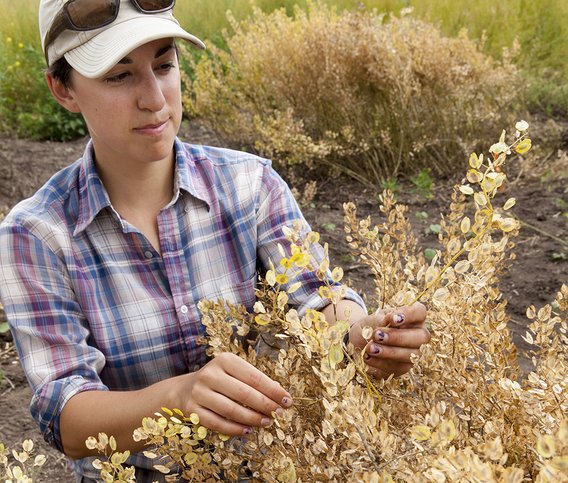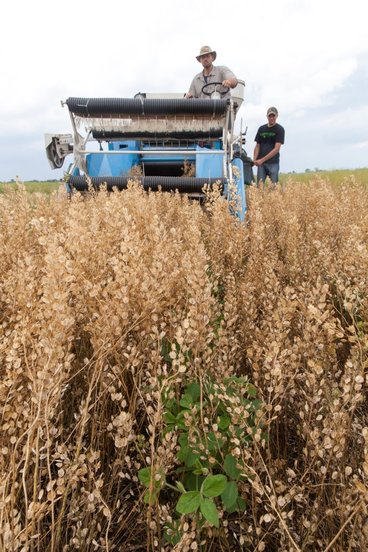
Cargill Grant Supports University of Minnesota Effort to Develop New Crops that Produce Low-Carbon Fuels and Feed, Protect Soil and Water
$2.5 million will support five years of research by the University’s Forever Green Initiative

Cargill has awarded $2.5 million to the Forever Green Initiative at the University of Minnesota to support research into two novel oilseed crops—winter camelina and domesticated winter pennycress—that can produce seed-based oil for low-carbon transportation fuels while also protecting soil, improving water quality, and providing new revenue streams for farmers.
“Winter camelina and pennycress could be truly transformative for farmers, the environment, rural communities, and the economy of Minnesota and the Upper Midwest,” said Mitch Hunter, associate director of the Forever Green Initiative, a research platform in the College of Food, Agricultural and Natural Resource Sciences. “We are extremely excited to have this support from Cargill, which will greatly advance our research and help make these crops a reality for farmers.”

Winter camelina and pennycress could be a major climate solution for hard-to-electrify parts of the transportation sector because their seed oil can be refined into drop-in replacements for jet fuel and diesel. Grown in the off-season and with few inputs, the crops produce seed-based oil with a small greenhouse gas footprint.
Fuel made from these crops could reduce emissions by more than 60 percent compared to petroleum jet fuel or diesel. Demand for sustainable aviation fuel (SAF) is increasing rapidly—spurred by state and federal tax credits and the newly launched Minnesota SAF Hub—and the shipping industry is looking for low-carbon replacements for conventional diesel fuel. The oil can also be used for food, biopolymers, and other industrial applications, and the high-protein meal can be used for animal feed.
Forever Green is an international leader in the development of winter camelina and pennycress. The Initiative is advancing a portfolio of over 15 new perennial and winter-annual crops. By integrating these novel crops with common Midwest crops like corn, soybean, and wheat, farmers can keep their soil covered with living crop plants year-round—a strategy known as “continuous living cover” agriculture.
A recent report called Putting Down Roots projects that, with widespread adoption in Minnesota, continuous living cover agriculture could reduce nitrogen loss from farmland by 23 percent and soil erosion by 35 percent by 2050. Nitrate is a major contaminant of ground and surface water. The report, released by Forever Green and its partners Friends of the Mississippi River and EcoTone Analytics, also finds that on-farm profit could increase 20 percent with a shift to continuous living cover. Winter camelina and pennycress were leading crops in this report, projected to be planted on over 5 million acres by 2050.
“Cargill is committed to building a more sustainable food and agriculture system, and part of our approach is helping make regenerative agriculture practices commonplace,” said Lyle DePauw, crop innovation director for Cargill. “Winter camelina and domesticated pennycress have the potential to address key sustainability challenges in agricultural supply chains, including water quality concerns and demand for low-carbon fuel feedstocks. Cargill is committed to creating opportunities for farmers to be profitable and sustainable.”
The five-year grant will accelerate research into crop biology and management. All research results will be shared publicly.





